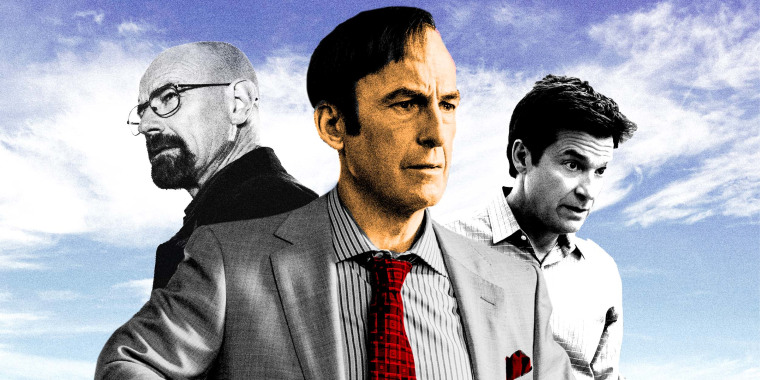Warning: This article contains minor spoilers.
Monday marked the conclusion AMC’s “Better Call Saul,” Vince Gilligan and co.'s Emmy-nominated spinoff of the vastly popular drug dealer drama TV series “Breaking Bad.”
Looking back on the show, I’m grateful for the ways it stuck out from the norm.
I was a late arrival to the “Breaking Bad” party and quickly became a binge-watcher once the series made its way to Netflix. I came to recognize Gilligan’s productions for masterful cinematography, and I hopped on the “Saul” train early on.
Whereas other white-guy-meets-cartel shows resemble the story of Icarus — a boy who flies too close to the sun — “Saul” shows us a man who hardly ever got off the ground.
But I couldn’t shake (still can’t) the discomfort I felt in seeing "Breaking Bad" hold a top spot in what I deem a troubling genre: American cinema that obsesses over cartels and, in particular, white guys who lord over them.
“White guy meets cartel” dramas have been some of the most popular shows over the past decade, with tales like “Breaking Bad” and “Ozark” most prominent among them. And they tend to follow a similar storyline. Usually, it's something to the effect of: Can you believe this well-mannered white man got mixed up with these drug-dealing heathens? And, gosh darn it, he knows the game better than they do!
In the case of "Breaking Bad" and "Ozark," in particular, the end product is ultimately a show about how white guys use their brilliance to outmaneuver mostly Latino cartels.
In "Breaking Bad," it’s Walter White (Bryan Cranston), a former chemistry teacher who uses his scientific expertise to cook up the best meth on the market. In "Ozark," it’s Marty Byrde using his superior math skills as a financial adviser to launder money for and manipulate a Mexican cartel.
From math to meth — white guys can do it all!
While both are entertaining shows, they rely on a familiar blueprint that centers middle-aged, seemingly mediocre white men as world-beating protagonists, and at the expense of Latino characters.
“Better Call Saul” was somewhat different.

Jimmy McGill (aka Saul Goodman, played by Bob Odenkirk) is a klutz — a ne’er do well. The series focuses on his aspirations of becoming a high-powered lawyer like his older brother, but we spend most of the time watching Jimmy’s aspirations weighed down by his own petulance and vindictiveness. Eventually, his pranks and plots are his demise and lead him into a life of crime. Whereas other white-guy-meets-cartel shows resemble the story of Icarus — a boy who flies too close to the sun — “Saul” shows us a man who hardly ever got off the ground.
Without giving too much away, his trajectory ends with him looking less heroic than the leading men in "Breaking Bad" and "Ozark."
I think Saul’s failures are valuable to see. In “Breaking Bad” and “Ozark,” we see white men who, as filmmaker Terence Nance described in a 2016 essay for digital media outlet Talkhouse, embody the “white devil” trope that’s become so popular in film and TV. As Nance explained, these devils or antiheroes (like Walter White or Dr. Gregory House of Fox's "House") are often “thrust into a situation in which they are surrounded by other white characters who do not possess their preternatural level of genius or skill.”
"The white devil’s narrative function is to win in the battle against his or her shadow self and make sure the dark energy that their shadow generates is used 'for good,'" Nance wrote.
“Better Call Saul” isn’t completely divorced from that idea. We still see Jimmy McGill using his unethical lawyering to the benefit of people he cares about at times. But we also see a lot of ineptitude and outright wrongheadedness. And that humanized the show’s main character in ways other white-guy-meets-cartel series haven’t.
